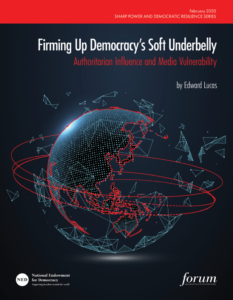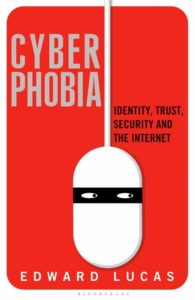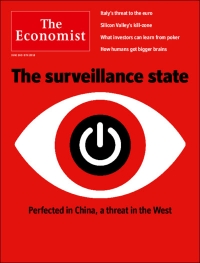 Global competition between the U.S. and China is spurring countries around the world to increase their military spending, according to a new report by an international think tank that reported the biggest increase in more than a decade, The Wall Street Journal reports (HT:FDD).
Global competition between the U.S. and China is spurring countries around the world to increase their military spending, according to a new report by an international think tank that reported the biggest increase in more than a decade, The Wall Street Journal reports (HT:FDD).
America came to the Munich Security Conference with a simple and surprisingly bipartisan message: an authoritarian China is on the rise and the democracies of the world, particularly those in Europe, must unite with America to stem the tide, writes Janka Oertel, Director of the Asia program at the European Council on Foreign Relations. The Speaker of the House, Nancy Pelosi, presented an equally stark message, warning European countries that they will “choose autocracy over democracy” if they let Huawei into their 5G networks.
Defense Secretary Mark Esper told European allies in a speech Saturday the U.S. considers China a pre-eminent threat in its pursuit of an “advantage by any means and at any cost, The Wall Street Journal adds.
Signals intelligence chief Simeon Gilding wrote for the Australian Strategic Policy Institute that the Australian Signals Directorate had concluded it was not possible to adequately mitigate the risk “that hostile intelligence services could not leverage their national vendors to gain access to our 5G networks.” Although Huawei’s founder Ren Zhengfei has insisted that he would not allow Chinese authorities to use his company this way, many regard such refusal as implausible given legal requirements and, more importantly, the underlying political reality they embody, China Digital Times adds.
 For a long time, America and democracy were terms that Europeans used almost interchangeably. But those days are gone. The disconnect has arguably never been greater between what the US wants to represent and how others perceive it. The forceful, consistent messaging on China and Huawei did not find a receptive audience. Instead, it only seemed to irritate the Europeans, Oertel observes:
For a long time, America and democracy were terms that Europeans used almost interchangeably. But those days are gone. The disconnect has arguably never been greater between what the US wants to represent and how others perceive it. The forceful, consistent messaging on China and Huawei did not find a receptive audience. Instead, it only seemed to irritate the Europeans, Oertel observes:
Europe wants to be strong and united. A bastion of democracy, human rights, and rule of law that can determine its future. It wants to find its own path on 5G and other issues, free of both Chinese coercion and American moralising. But grand speeches about European purpose cannot paper over the reality of a Europe divided, stymied by inertia and an absence of European solutions to the vexing questions of the future. In this absence, Europeans will be stuck with the choices that the US lays out for them to select from. Finding their own way will require bold decisions. In Munich, Europeans did not yet appear up to the task. RTWT
A new report, launched at the Munich Security Conference, explores how leading authoritarian regimes have exploited democratic norms and transformed the market for information into a dangerous tool to exert antidemocratic sharp power.
 Under enormous economic and political pressures, independent media are struggling to respond, writes CEPA’s Edward Lucas, author of Cyberphobia: Identity, Trust, Security, and the Internet. News outlets face wrenching changes in their business models, driven by technological revolution. he writes in Firming up Democracy’s Soft Underbelly: Authoritarian Influence and Media Vulnerability [PDF].
Under enormous economic and political pressures, independent media are struggling to respond, writes CEPA’s Edward Lucas, author of Cyberphobia: Identity, Trust, Security, and the Internet. News outlets face wrenching changes in their business models, driven by technological revolution. he writes in Firming up Democracy’s Soft Underbelly: Authoritarian Influence and Media Vulnerability [PDF].
The launch of the report commissioned by the National Endowment for Democracy (NED), the Washington-based democracy assistance group and hosted by Christopher Walker, the NED’s Vice President for Studies and Analysis, drew an audience that included a U.S. senator, a senior administration official, and the former president of Estonia, Lucas adds:
Some of my proposed solutions are technological. We need to give media consumers better ways of identifying where information comes from and who is spreading it. Those may need to be backed up by legislation or regulation. But the more important measures are “normative”: changing the ways that we as individuals behave. One idea I advocate is a charter of responsible practice in which news outlets would agree to meet simple tests of realness and fairness. Who is the editor? What is the street address? What’s the policy on correcting mistakes? RTWT
 China cannot become a global power if it remains “blatantly incapable of treating its own people properly,” argues Xu Zhangrun, the Tsinghua University professor who was punished for an unsparing critique of President Xi Jinping. The salvation is for China to embrace constitutional democracy. “In the end, it is about freedom,” The Washington Post adds.
China cannot become a global power if it remains “blatantly incapable of treating its own people properly,” argues Xu Zhangrun, the Tsinghua University professor who was punished for an unsparing critique of President Xi Jinping. The salvation is for China to embrace constitutional democracy. “In the end, it is about freedom,” The Washington Post adds.
Xu denounces what he calls “big data totalitarianism” and “WeChat terrorism,” the latter being “a vast Internet police force that is empowered by the party-state to oversee, supervise and track every statement and action made by everyone in the country.”
To prove his case….
Police in the southern Chinese city of Guangzhou have detained dissident Xu Zhiyong — who had been on the run for seven weeks — using facial recognition technology and big data analysis, RFA has learned. Xu, who has already served jail time for his spearheading of the New Citizens’ Movement anti-corruption campaign, had also penned an open letter to President Xi Jinping while in hiding, calling on him to step down.







